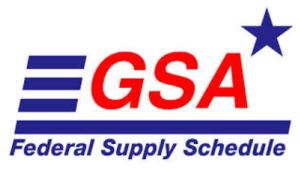When selling to the federal government under a GSA Schedule contract, pricing isn’t just about negotiation—it’s about trust, transparency, and consistency. Enter the GSA Most Favored Customer Clause (MFC)—a provision that can either reinforce your business reputation or trip you into compliance nightmares.
But what does the clause really say? Who qualifies as your “most favored customer”? And how can it affect your pricing flexibility not just in federal deals, but across your entire commercial business?
This article breaks down the GSA Most Favored Customer Clause in plain English, explains how it’s applied, where businesses go wrong, and what you need to do to stay ahead of audits, price reduction clauses, and the risk of losing your contract.
If you’re pursuing or already managing a GSA Schedule, this clause isn’t optional knowledge—it’s mission-critical.
What Is the GSA Most Favored Customer Clause?
The Most Favored Customer Clause (Clause I-FSS-969) is a pricing provision within GSA Schedule contracts. It requires contractors to offer the government pricing that is equal to or better than the best pricing provided to any of their other customers under similar terms and conditions.
In other words, if you give another client a better deal, you may need to give the government the same deal—or justify why that price doesn’t apply to GSA.
This clause ensures that taxpayer dollars stretch as far as possible—and that vendors don’t offer better pricing to the private sector than they do to federal agencies.
The Purpose Behind the Clause
Why does the government include the MFC clause? Because when federal buyers spend billions of dollars annually, they want to ensure they’re getting:
- Competitive pricing
- Fair market value
- Transparent vendor behavior
- Cost savings across the board
The MFC clause helps level the playing field and holds businesses accountable for the pricing promises they make during the GSA proposal phase.
Who Is the Most Favored Customer?
Your Most Favored Customer (MFC) isn’t just your biggest client. It’s defined by:
- Class of customer (e.g., reseller, distributor, end-user)
- Sales terms (volume, frequency, geography)
- Discount structure (percent off MSRP or list price)
Let’s say you give a 20% discount to a large commercial client buying 10,000 units annually. If the GSA buys 10,000 units, they expect that same or better discount unless there’s a valid justification.
Where This Clause Lives in GSA Contracts
You’ll find the MFC clause included in the Price Reductions Clause (PRC), which works like a watchdog. It tracks your commercial pricing behavior after your GSA award.
Here’s how it works:
- You agree to a Basis of Award (BOA) customer—usually your MFC.
- If you offer that customer better pricing during your GSA contract term, you must reduce your GSA pricing accordingly.
Consequences of Ignoring the MFC Clause
Ignoring or misunderstanding the MFC clause isn’t just risky—it’s costly. Here’s what can happen:
- OIG Audits that result in contract suspension or cancellation
- Refund demands for overcharges to government buyers
- False Claims Act liability for deceptive pricing behavior
- Loss of GSA Schedule privileges for future bids
In 2019 alone, several vendors were fined millions of dollars due to MFC violations.
Common Mistakes Vendors Make
Even seasoned businesses slip up. Here are some of the most frequent errors:
- Offering deeper discounts to commercial customers without notifying GSA
- Failing to define or document their BOA customer class
- Not monitoring pricing across all departments or channels
- Assuming MFC doesn’t apply to promotions or bundled deals
Remember: The GSA sees pricing patterns. And they audit retroactively.
How to Stay Compliant with the MFC Clause
Smart businesses build compliance into their pricing strategy from day one. Here’s how:
- 📚 Clearly define your BOA customer class in your proposal
- 🔍 Set up internal pricing audits across commercial sales teams
- 🛠️ Use GSA-specific SKUs or price lists
- 📑 Document every discount justification
- 🔄 Communicate any pricing changes to your Contracting Officer promptly
Don’t wait for a GSA audit to tell you you’ve been out of bounds—make compliance a daily discipline.
Does MFC Apply to Every GSA Contract?
No, but almost all product and service vendors under GSA Schedules are subject to the clause. Exceptions include:
- Contracts awarded under Transaction Data Reporting (TDR) pilot program
- Certain Multiple Award IDIQs
- Some services where market pricing is highly variable
However, these are exceptions, not the norm. Unless specifically exempted in writing, assume the clause applies.
What Happens If You Need to Offer a Better Deal Elsewhere?
There are legitimate reasons to offer better pricing to select customers—volume, urgency, or special terms. But under GSA rules, that means you must:
- Notify your Contracting Officer
- Justify the differential in pricing
- Request a modification to your contract (if necessary)
Transparency is the key. If you’re upfront, you may retain flexibility. If you’re not, you’re gambling with your government business.
Cap50 Helps You Get GSA Pricing Right the First Time
Here’s the hard truth: Most MFC violations don’t come from bad intentions. They come from poor documentation, unclear policies, and siloed pricing decisions.
At Cap50, we help you build a bulletproof pricing foundation that not only gets your GSA proposal accepted—but keeps it compliant for the long haul.
✔️ Align your BOA class with real-world pricing
✔️ Create audit-ready pricing frameworks
✔️ Train internal teams on GSA discounting rules
✔️ Respond to GSA pricing inquiries with confidence
✔️ Avoid red flags that trigger audits
💡 Tired of decoding GSA fine print? We turn legalese into leverage.
📈 Let’s protect your margins and your contract.
👉 Get Clear on GSA Pricing With Cap50 →
Conclusion
The GSA Most Favored Customer Clause isn’t just a paragraph buried in your contract it’s a pricing promise, a trust agreement, and a legal obligation. If you’re selling to the government under a GSA Schedule, ignoring it isn’t an option.
Treat it as a competitive advantage. With the right strategy, documentation, and guidance, you can offer compliant pricing, win more deals, and scale your government revenue without stepping into legal quicksand.
And remember: pricing is only a problem when it’s misunderstood. With knowledge, it becomes your most powerful tool.




